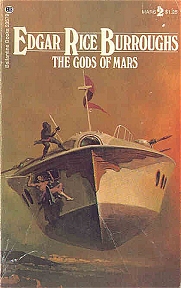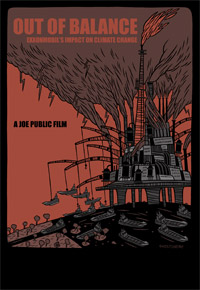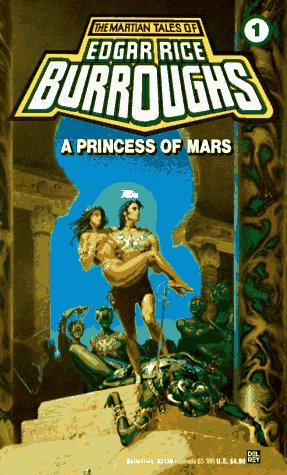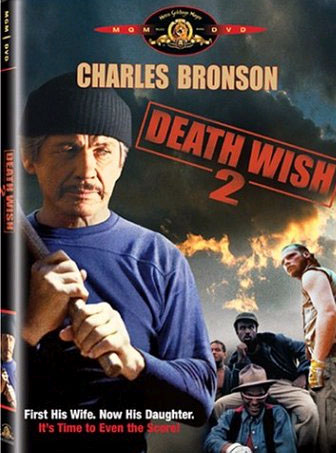
This last few weeks have marked the passage of the seventh annual Anchorage International Film Festival, an event for which I was lucky enough to be a judge(in one of the short film categories). This presented me with a golden opportunity to attend every screening for free. I was in heaven. Unfortunately, this happened to coincide with my increasingly stupid looking decision to take on a second job for extra holiday money. Coupled with normal familial duties, I was unable to attend all but two films. The first of the two, Once, was extraordinarily enjoyable, and I'll be writing about that one at a later date. The second film, and subject of this post, was Cthulhu, a low budget, DVE-shot horror film loosely based on HP Lovecraft's Shadow Over Innsmouth.
In this filmed version, the main character, Russ, is a gay history professor in Seattle who is called back to his home town of Rivermouth when his mother passes away. Back in Rivermouth, Russ can't wait to return to Seattle, finding nothing but antagonism from his father(who leads the church of the Esoteric Order of Dagon) and the townsfolk who view his sexuality as the height of mental degeneration. His father, and indeed a few of the townspeople, take a very aggressive interest in wanting to see Russ have children(for reasons I'll explain later, but will probably make a bit of sense to people familiar with the story). The only friendly face he sees is that of his childhood friend Mike, a divorced father with whom he had a... sexually ambiguous relationship growing up. I suppose at this point something should be said about the homosexual themes in this film, since the protagonist's homosexuality is a large part of the plot both literally and metaphorically. Russ' father is upset at his son not for being gay, it seems, but for not having children, and metaphorically Russ' homosexuality heightens the tension and fear of returning to a small town, let alone one as bizarre as Rivermouth.
The plot(and I'm going to give spoilers here, so if you haven't read the story, or want to see this fresh, I'd suggest you skip ahead a paragraph) revolves around Russ' heredity, and the Esoteric Order of Dagon that his father leads. Dagon, as Lovecraft readers know, is one of the Deep Ones, a fish-god that grants wealth to those who offer up human sacrifices. There's also a lot of inter-species breeding going on, as the fish-men mate with humans and produce immortal offspring, and the people themselves begin to become more fish-like. Russ' family is so intent on him having children because his family has long been the emissaries of Cthulhu(although the church names Dagon, he is never specifically mentioned in the movie, instead they use the more popularly known Cthulhu), and they need him to father the next generation of fish-people and pave the way for the return of the Deep Ones. This is a little ill-defined in the movie, as much of the film is. A lot of it still works, however, to heighten the confusion and fear, but at times is the ambiguity is a bit off-putting. It works well when the characters are confused and unsure of things, but when they seem completely aware of everything and the audience is in the dark, it's a bit frustrating.
Now, I'll be honest here and admit that my initial reaction as the film went to black was 'god, what a mess!' The film is so jumbled and switches scenes and tones at such a jarring rate that it seemed to me a horribly confused mess. But, as the credits rolled, and that final image stuck with me, and I thought back over the film, I realized that the film had some very good ideas, but was slightly off the mark. The film feels one or two drafts, and several days in the editing bay away from being a really good film. The director, Dan Gildark, was at the screening I attended, and said that his distributor was imposing 8 minutes of edits on him, and I really do think that with those trimmings the film could be something special. Particularly, the flashbacks seem largely unnecessary and confusing. There's a brief flashback of Russ entering a room where a woman is crying, you see him with a shocked face as the woman screams 'What did you do to me?' Later in the film Russ is seen attempting suicide in flashback. Who was this woman? Was it his sister(the only prominent female from his childhood we see)? What was done to her? Did Russ attempt suicide because of this or some other reason? It's not clear at all, although when I asked him the director said there was a whole side story there that he cut out, choosing instead to make that vague and mysterious. I think this was a mistake, because without any context the flashbacks only serve to distract from an already convoluted plot, and it seems like these scenes should be important but there's absolutely no connection to the rest of the film.
But let's focus on what does work. As I said, the idea of an ostracized gay man returning home to face malevolent cosmic forces AND unfriendly townspeople is well realized, and more literally turns the hero into 'the outsider', something the film is tactful enough not to hammer you over the head about. The more mundane family and relationship moments work very well, which is something that doesn't happen often in horror movies. There's frequent, albeit brief, suggestions that place this movie in the near future; radio programs talk about increasing violence and ecological decay, one reports that the last surviving wild polar bear had died in Siberia, and every television station seen in the background has a 'breaking news' banner and blurry images of violent events. This all serves to heighten the 'Lovecraftian' horror of the story, with the madness being an ever present threat around the edges of the characters lives until it forces it's way into the center stage. The ever-present threat of rising ocean waters brings with it the implication that the world of the Deep Ones will be coming to overtake the world of man, which is a pretty clever twist.
Cthulhu was shot on DVE, which gave the theatre image a slightly blurry, out of focus look(I don't know if this will be the same for the image on a smaller television set), but made the colors incredibly bright and pure. This is a fairly low budget horror film, so anyone expecting a horror-fest like the Stuart Gordon/Brian Yuzna Lovecraft adaptations is going to be very disappointed. The effects, what little there are, are only briefly glimpsed and, at one point, slightly cheesy. Instead this film is more of a character driven drama with horror elements in it. Some of the horror elements, unfortunately, rely a little too much on the trappings of the genre, such as a scene where a little boy in front of a staticy television screen says "we're waiting... for Cthulhu" and the camera jump cuts a bit closer as he says Cthulhu. Or the crazy old aunt in a mental ward who turns away from the character, towards the camera as she starts over-emoting her forebodings of doom. Or a scene with a weird glowing tentacle thing that would look cheap no matter what, but is made slightly silly by the jump-cut and ominous, piercing string music that accompanies it. All of these scenes are played with such straight-faced seriousness that they stumble over the line and into camp, and are at odds with the tone of the rest of the film.
Speaking of things at odds with the film; Tori Spelling. The director had nothing bad to say about Tori Spelling, but I wanted to comfort him and give him my condolences that she was in this film, because her completely over the top performance suggests an alien trying to emulate femininity after watching hours of Marilyn Monroe, Betty Boop and really bad porno dialogue. I might be a bit harsh on her, but she was really, really unconvincing, and while her plotline was funny and integral, a better actor would have focused the laughs on the humor in the script, not the horrible line readings and unattractive come-ons. Aside from her, I have nothing but good things to say about most of the cast. Although some of the supporting characters ham it up a bit, the two male leads are generally well suited to the parts they play.
So in the end my rating for this film would put it around 3 out of 5 stars, which may be a bit misleading. I don't dislike this film, in fact I quite enjoyed it and plan on seeing it again when it gets an official distribution. But, due to some jarring tonal shifts and jumbled plotting it didn't fully engage me. I have high hopes that a slightly edited version, released in the spring, will improve my rating for this film. The director mentioned as his influences the films of Japanese directors Takashi Miike and Kyoshi Kurosawa. Miike I didn't spot, but anyone who enjoys the glacial pace and subtle horror of Kurosawa's films(particularly Charisma, a film I should admit I understand not a goddamn bit) will probably find a lot here to enjoy.
One last thing should be said about the sexual themes in this movie; I've been lurking around in the wastelands of the IMDB comment board, seeing what people had to say about this film. Many are purists upset at the liberties taken with the source material, and angered by the lack of tentacled monsters and outright scares(there are a few in Cthulhu, but that isn't the main focus), but a surprising amount of them are angered by the fact that the film has a publicly gay main character. This is upsetting, and surprising to me because I assumed that anyone open-minded enough to read Lovecraft, with his mind-bending mythology that isn't exactly Judea-christian friendly, should be open-minded enough to deal with a movie where two men kiss(yes, there is a love scene, and although it will gross many people out, it is filmed with more class, tenderness and romanticism than most heterosexual love scenes, and has 100% less testicles than Borat did). Some have argued that Lovecraft didn't write about sex at all, and so it should be left out of any filmed adaptations. And while that's true to a point, it should be mentioned that many of his stories dealt indirectly with bestiality. What is The Shadow Over Innsmouth about, if not a bunch of fishermen having sex with fish?
 Something I've had to admit lately, as much to myself as to others, is that I like musicals. Now, I don't have much experience in this area, but I think it's safe to say I'm becoming a fan. It isn't a genre where I'm rushing out to see all of the new releases(I'm fairly ambivalent about what I've seen so far of Chicago and Dreamgirls and, sorry to say, Hairspray), but I find the trappings of the genre highly entertaining. I love the theatricality inherent in using music and dancing to tell the story, and if that movie is one where it's realism would seem to preclude such flights of fancy, well, all the better. The scene in Magnolia where all of the characters begin singing the same Aimee Mann song gives me chills, and the musical numbers in the 40 Year Old Virgin and Anchorman gave some of the most hilarious, utterly joyous moments in both of those films. Admittedly, Anchorman is not a movie grounded in any conventional reality, and it's technically not a musical number, but it's still a bit unexpected when the characters break into Afternoon Delight. And so I came into my viewing of the movie Once a little bit predisposed to enjoy myself. The fact that it turned out to be not really a musical at all did little to change my disposition.
Something I've had to admit lately, as much to myself as to others, is that I like musicals. Now, I don't have much experience in this area, but I think it's safe to say I'm becoming a fan. It isn't a genre where I'm rushing out to see all of the new releases(I'm fairly ambivalent about what I've seen so far of Chicago and Dreamgirls and, sorry to say, Hairspray), but I find the trappings of the genre highly entertaining. I love the theatricality inherent in using music and dancing to tell the story, and if that movie is one where it's realism would seem to preclude such flights of fancy, well, all the better. The scene in Magnolia where all of the characters begin singing the same Aimee Mann song gives me chills, and the musical numbers in the 40 Year Old Virgin and Anchorman gave some of the most hilarious, utterly joyous moments in both of those films. Admittedly, Anchorman is not a movie grounded in any conventional reality, and it's technically not a musical number, but it's still a bit unexpected when the characters break into Afternoon Delight. And so I came into my viewing of the movie Once a little bit predisposed to enjoy myself. The fact that it turned out to be not really a musical at all did little to change my disposition.














